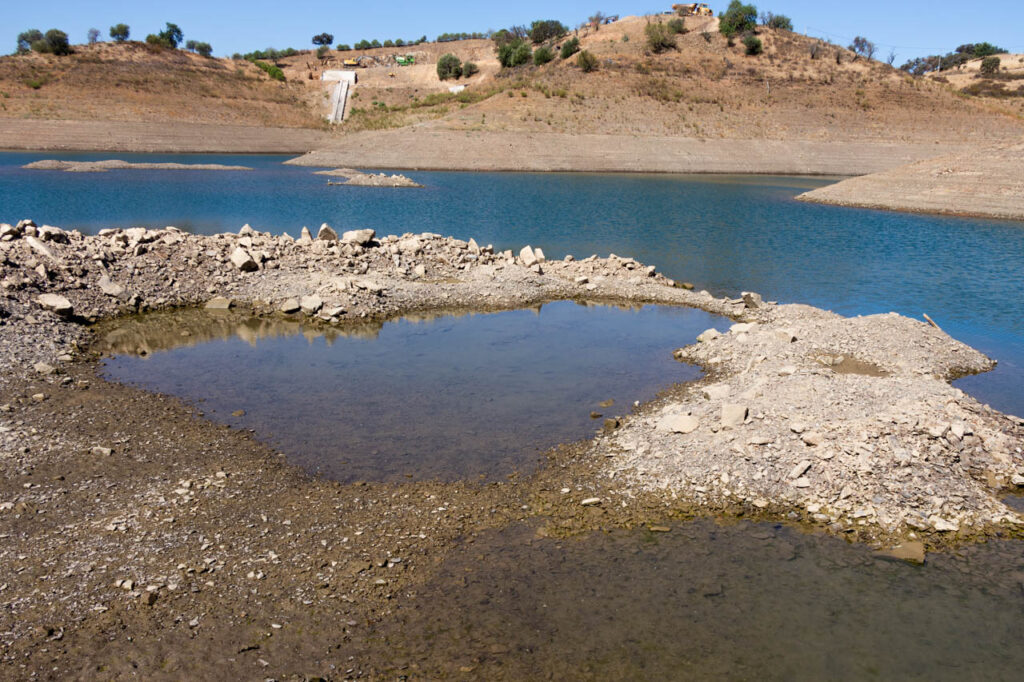“You never know the results that will come from your action. But if you do nothing, there will be no results.”
Mahatma Gandhi
The year 2022 begins with contradictory signs: the beelzebub seems to be putting its tail between its legs and “domesticating” itself so that it can continue to live with humans without killing them, but at the same time, the drought that it had remained a latent threat for several years… tcharaaam! it imposed itself with a bang and it is no longer possible to open a newspaper or television without facing countless articles and reports on the subject.
The press presses, statements multiply and we are confronted with astonishing facts, such as, for example, the candid revelations of the regional director of Agriculture about the seven million cubic meters that are wasted every year in the distribution channels of the Barlavento dams. .
As I said? Seven million cubic meters a year? And how many years has this been happening? And only now, that we are faced with the fait accompli, are they rushing to fix this mess?
In the same vein as the awareness of having an elephant inside the room, the Águas do Algarve spokeswoman informs that we can continue to open the taps in the next year and a half and diligently adds that “we are preparing awareness campaigns so that the population realizes what the real problem of the lack of water is and what the consequences for the future”.
Seriously? Do we open the faucets freely for the next year and a half, or do we have a real problem of lack of water and do we have to take action immediately?
It's fair to say that after the house is stolen, they put locks on the door.
The motto of those who manage our vital resources, contrary to popular wisdom, seems to be that it is better to cure than to prevent. Insisting on this path obviously cannot bring good results.
But let us rejoice that not all is darkness. And the good news is:
– better late than never, and
– there are no more excuses for us to continue whistling to the side and wasting water like there is no tomorrow.
Excuses are also starting to run out to blame exclusively the leaders and to pretend that we are not responsible for our collective future. In fact, the problems we face can only be overcome if we become aware of them and come together as a community to discuss them, find solutions and act accordingly.
We have to imitate the trees, not the severed and sad ones, victims of attacks by the stupidity armed with chainsaws, but the whole trees that live in harmonious communities that take care of each other by transferring food between the roots and that use the communication network that fungi provide you with the opportunity to exchange information and strengthen the union to face pests and diseases together.
We continue to believe in the Glocal motto “Think Global, Act Local”. Getting to work collectively is in our DNA – if there is a problem we will solve it together.
It is clear that integration and collective action is not an easy task. The owners of the world, and of the little worlds in which we move, know well that divide and rule is the sine qua non condition for remaining in power and they act accordingly. Each head its sentence and everything else that leads us to have an increasingly individualistic behavior… it's a dose! However, reality proves us that we have to look beyond appearances, compile information to have the true dimension of the issues we face and not let ourselves be lulled or terrified by the “covidizer”.
Quoting Gandhi again:
"Happiness is when what we think, say and do are in harmony."
Our individual action, as responsible consumers committed to an increasingly sustainable planet, combined with collective action to solve common problems are the keys to success.
Collective action can be aimed at directly solving problems with the resources available to us, or questioning and forcing public entities to act to preserve and improve the common good.
Both actions are essential to transmit ancestral values and to return in good condition the indispensable heritage for life that we received from previous generations – air, soil, water and biodiversity.
Author: Alice Pisco is an agricultural technical engineer, co-founder of Glocal Faro, committed to building a better world.
glocalfaro@ Gmail.com
https://www.facebook.com/glocal.faro/




















Comments